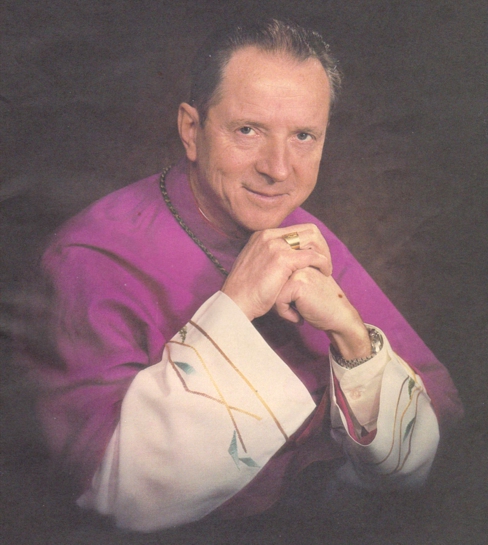Bishop Remi De Roo – 1924 – 2022
Volume 37 Issue 1, 2 & 3 | Posted: April 6, 2022

DE ROO, Bishop Remi Bishop Remi De Roo, a strong advocate of the teachings of the Second Vatican Council, who, as Bishop of Victoria for 37 years, was a driving figure for change in the Catholic Church and who did not hesitate to criticize governments for policies disadvantaging the poor, died in Victoria, B.C. February 1, 2022. He was 97.
Appointed a bishop by Pope John XXIII in 1962 at the age of 38, he was seen as the youngest bishop in the world. When he died, he was the last surviving Canadian bishop who had attended the Vatican Council, which took place 1962-65. His influence reached far beyond the Catholic Church. He was the first chairperson of the British Columbia Human Rights Commission; he was made an honorary officer of the Order of the Anglican Diocese of B.C.; the Emanu-El Jewish Synagogue of Victoria honoured him; he was inducted as a member of the Coast Salish Nation for his work among Indigenous people. In 1970, he was a founding member of the World Conference of Religion and Peace. Bishop De Roo came to national attention in 1983 when, as chairman of the Catholic Bishops’ Social Affairs Commission, he authored “Ethical Reflections on the Economic Crisis,” a stinging indictment of government policies for giving priority to “the wants of the rich” over the needs of the poor. He faced a storm of corporate protest, but held steadfast that action for social justice was a constitutive dimension of the proclamation of the Gospel.
Remi Joseph De Roo was born February 24, 1924 in Swan Lake, Man., and grew up on a farm, one of eight children of Raymond De Roo and Josephine De Pape of Flemish ancestry. He graduated from College de Saint-Boniface and earned a doctorate in sacred theology from the Pontifical University of St. Thomas Aquinas (Angelicum) in Rome. He was ordained a priest June 8, 1950. He was awarded honorary doctorates from several universities, including Antigonish, Winnipeg and Victoria. The 16 documents of the Second Vatican Council, particularly the Constitution on the Church and the Constitution on the Church in the Modern World, defined his life. As he explained in his memoirs, Chronicles of a Vatican II Bishop, published in 2012, he saw himself as “a pilgrim of Vatican II.” He gave four interventions to the assembled Council, a remarkable achievement for so young a bishop. His talk on the values of conjugal love in marriage was supported by thirty-three Canadian bishops, who appended their signatures to his words. He had prepared for this topic by calling a meeting of married people on Vancouver Island. He also argued for a fuller role of women in the Church, telling his fellow bishops gathered from around the world, “We find it necessary that this Council open doors for a deeper collaboration of women in the Church’s apostolic mission.” From 1986 to 1991, Bishop De Roo initiated throughout Vancouver Island a diocesan “synod,” which was an assembly of the faithful to discuss the implementation of the Gospel values of Vatican II into the lives of the “People of God.” He also had a special dedication to the well-being of the Church in Central America. In his “retirement,” which lasted 22 years after stepping down as Bishop of Victoria at age 75, he and his colleague Pearl Gervais collaborated on team teaching, giving seminars and workshops throughout North America, Europe, Taiwan and mainland China on Scripture, spirituality, justice, peace, the role of women in the Church and the other subjects of Vatican II. Bishop De Roo is survived by his sisters, Clara Major of Killarney, Man., Alma Verdonck (Marcel) of Winnipeg, and Madeline Martinez of Bakersfield, Calif.
Arrangements entrusted to Telford Nault/McCall Gardens 250 385 4465
